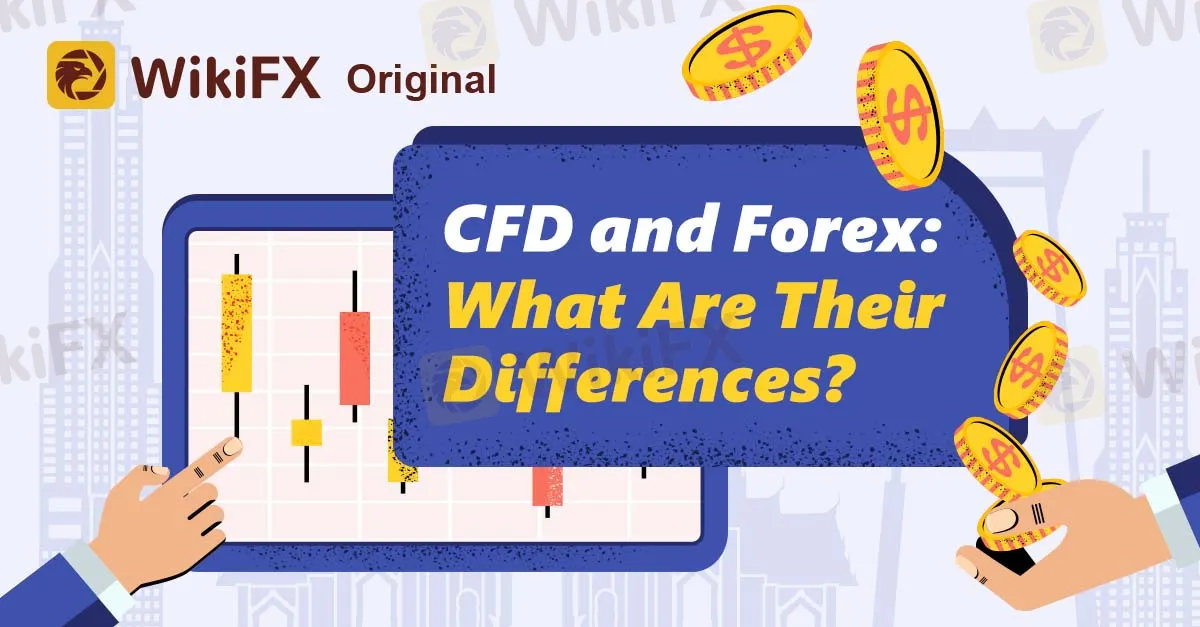简体中文
繁體中文
English
Pусский
日本語
ภาษาไทย
Tiếng Việt
Bahasa Indonesia
Español
हिन्दी
Filippiiniläinen
Français
Deutsch
Português
Türkçe
한국어
العربية
CFD and Forex: What Are Their Differences?
Abstract:We often see the terms “CFD” and “forex” come alongside one another on the websites of broker companies. But do you know their actual differences?

Though both CFDs (contract for difference) and forex do not involve the trading of any physical assets. They are both traded over the counter through a decentralised market with similar execution manners. Unlike other types of trading instruments that could involve other finance fees and charges, the only cost of trading for CFDs and Forex is the spread – that is also the source of income for a legitimate brokerage.
CFD constitutes a contract, but not a physical asset, between brokers and traders to pay the difference in the entry and exit price of that underlying asset in question. The profit or loss is calculated based on the entry and exit price difference and multiplied by the number of CFD units traded. CFDs allow traders and investors to dabble in many trading instruments, such as commodities, stocks, metals, indices, options, exchange-traded funds (ETFs) and more. On the other hand, forex trading is straightforward – it is the trading of currencies, and only limited to that.

Another distinction is how the markets are influenced. Global events or a nations stability, such as political changes and more fundamental factors, are the major drivers behind the currency market. However, CFDs are more inclined to be affected by supply and demand, trends, sector and industry development, and many other factors that could cause asset values fluctuation.
Furthermore, the forex market is open 24 hours a day, five days a week, allowing investors all over the world to trade whenever they want. CFD trading times vary depending on the underlying market, commodity, or asset.

Disclaimer:
The views in this article only represent the author's personal views, and do not constitute investment advice on this platform. This platform does not guarantee the accuracy, completeness and timeliness of the information in the article, and will not be liable for any loss caused by the use of or reliance on the information in the article.
WikiFX Broker
Latest News
Think Before You Click: Malaysian Loses RM240,000 to Investment Scam
Ghana Trader Jailed for $300K Forex and Crypto Scam
US Dollar Surge Dominates Forex Market
Hong Kong Police Bust Deepfake Crypto Scam Syndicate Involving $34 Million
Is it a good time to buy Korean Won with the current depreciation?
Lawsuit Filed Against PayPal Over Honey’s Affiliate Fraud
What Are The Top 5 Cryptocurrency Predictions For 2025?
BlackRock Bitcoin ETF Outflows Hit $332M in Single Day
XRP Price Prediction for 2025: Will It Hit $4.30 or More?
Exnova Scam Alert: Account Blocked, Funds Stolen, and Zero Accountability
Currency Calculator






